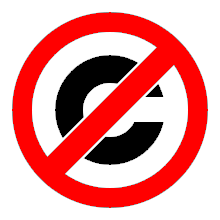Etiquette
A great deal of currently accepted practice on the Internet is inappropriate and potentially harmful to the participants.
People commonly send each other information in proprietary formats without being aware of what they are doing, and what this really means. People join social networking sites without understanding that they are compromising their privacy. They invite me to join them, and as part of their invitation process they provide my name and email address to big business, thus compromising my privacy too.
As a student of the Internet as a societal medium, I constantly think about what is the right policy and the right etiquette for interaction with others.
Below are some of the policies I have established, as a result of my ongoing thinking and analysis, and that I follow for my own use of the Internet. My own policies are often in conflict with the unthinking behavior of the majority of Internet users.
Confidentiality treatment of Email Communication
As both the recipient and the sender of email, I need to think about my policy and expectations regarding confidentiality treatment of the communication.
As a recipient, I determine my confidentiality treatment of the email communication based on the context of the communication.
As a sender, I indicate my confidentiality expectations by means of the email address prefix appearing in the From line. When the general nature of the of the email is public and non-confidential I use prefixes such as public@, libre@, activism@. When the nature of the email is one-on-one and confidential I use prefixes like friend@, personal@, desk@.
Many businesses, especially legal firms, automatically include disclaimers at the bottom of all out-going emails declaring the email to be confidential, and demanding it be treated as such. This has no effect or authority whatsoever, and I do not consider myself in any way bound by this. A sender cannot send an unsolicited email, and at the same time impose a confidentiality obligation on the recipient. If you don't like this policy, then your recourse is this: don't send the email in the first place.
Third-Party Involvement in Communications
I frequently receive e-cards from acquaintances, with an announcement or invitation of some kind, such as a birthday or holiday. But in doing so, the acquaintance has given a third party my name and email address, and has also told the third party something about the nature of our relationship.
As a matter of policy, I ignore e-cards whenever a third party is involved. Part of the tremendous power of the Internet is its End-to-End paradigm, allowing direct communication between individuals without any third-party intermediary. If you want to send me something, then please, let it be just between the two of us.
Invitations to Join Social Networks
I also frequently receive invitations to join social networking sites.
Again, people join social networking sites and invite others to join them without being aware of what they are doing, and what the consequences are.
Existing social networking sites are closed, proprietary services, designed among other things to generate revenues based on exploitation of their users' personal information. Users of the site have no knowledge of what the service is doing with their information. Every item of information provided to the site, implicity or explicitly—every communication, every search query, every website visited, every mouse click—can be used by the service provider for unknown purposes, without the user's knowledge or consent.
The service provider's policy is specified in the Terms of Use for the site, but this is drafted by the service provider and provides little protection for the user.
Thus in general I ignore invitations to join social networking sites. With this exception: as a student of the medium I have joined LinkedIn, so I can observe and participate in social networking first hand. So, please join me there if you wish.
File Format for Information Exchange
I also quite often receive documents in proprietary formats such as Microsoft Word or Microsoft PowerPoint. I typically send the following boilerplate email in response:
Subject: Information received in a proprietary file format
This message has been sent automatically in reply to your recent email.
Your email included an attachment file in Microsoft Word format. For reasons of both practicality and policy, I am unable to open the file and read it. First as a matter of practicality: my computing and communications environment is based wholly on free software—I do not use any proprietary tools or applications. Thus Microsoft Word is not present on my desktop, so I cannot open the file.
And as a matter of policy: though commonly treated as a standard for Internet communications, as you just have, Microsoft Word is in fact a closed, proprietary format, and I do not wish to participate in or validate its use as an implied standard. If you send me your document in an open format such as HTML, PDF, or just plain text, I will be happy to read it.
Please understand that this is not about the content of your document. It is about your implicit assumption that I, and presumably everyone, must necessarily run Microsoft Word on their desktop. This assumption is incorrect.
Exchanging documents in Word format is bad for you and bad for others. Receiving Word attachments is bad for you because they can contain viruses. Sending Word attachments is bad for you, because a Word document typically includes hidden information about the author, allowing others to pry into your activities. Text that you think has been deleted may still be embarrassingly present.
But more important than any of this is that sending people Word documents perpetuates the use of this proprietary Microsoft format as an implied standard for global Internet communications. This places an obligation on your recipients to use Microsoft applications, rather than the far healthier free software equivalents. In effect, you become an active promoter of the Microsoft hegemony. Would you please reconsider the use of Word format for communication with other people?
To convert your document to HTML is very simple. Open the document in Word as usual, and from the menu select File, then Save As, to display the Save As dialog box. Then in the Save As Type drop-down list box select "Web Page" or "HTML Document," and finally click Save. You can then attach the new HTML document instead of your Word document. (Note that Word changes in inconsistent ways from version to version—you may see slightly different menu item names from those specified above.)
To convert to plain text is exactly the same, except that from the Save As Type list, instead of Web Page or HTML Document, select "Text Only."
Your computer may also have a program to convert to PDF format. From the Word menu select File, then Print, to display the Print dialog box. In the Name list, scroll through the available printers and select the PDF converter. Click the OK button and when prompted, enter a name for the PDF file.
Regards,
...Mohsen
P.S. For further discussion of why Word should not be used as an implied standard for electronic information exchange, please read http://www.gnu.org/philosophy/no-word-attachments.html. This article more fully explains the compromises both the sender and recipient are making when exchanging Microsoft Word documents.




